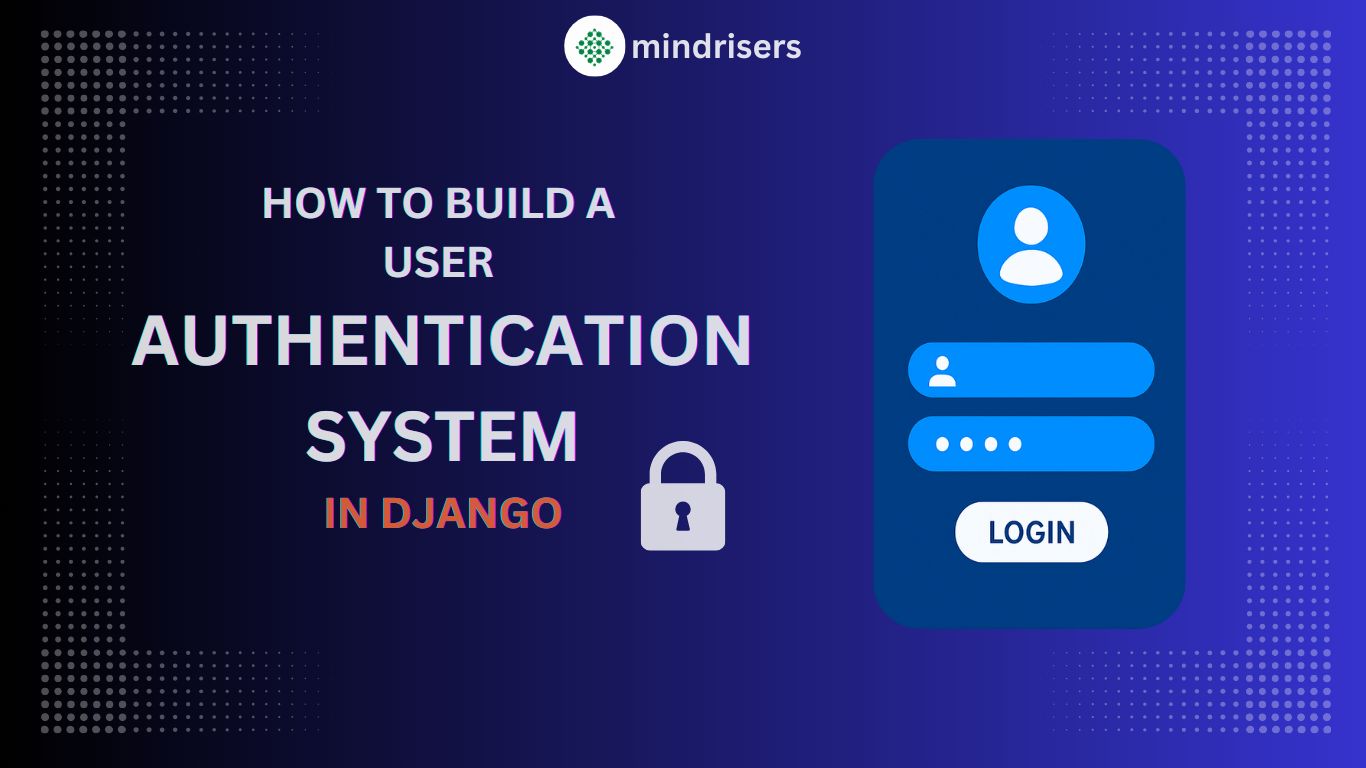
Bhushan Raj Shakya - Author
2023-09-27
In the ever-evolving landscape of online marketing, PPC (Pay Per Click) has emerged as a potent tool for businesses seeking to enhance their online visibility and drive targeted traffic to their websites. In this comprehensive guide, we'll delve into the intricacies of PPC advertising, how it works, and its relevance to businesses in Nepal, particularly in cities like Kathmandu, Bhaktapur, and Lalitpur and all over Nepal. We'll also explore the fundamentals of PPC, including keywords, Google Ads, and account management.
Are you ready to unlock the full potential of PPC and digital marketing? Join Mindrisers, Nepal's premier IT institute in Kathmandu, Bhaktapur, and Lalitpur, and supercharge your career with our Digital Marketing Training. Get started with Mindrisers today!
What is PPC (Pay Per Click)?
Pay Per Click, commonly known as PPC, is a digital advertising model that allows businesses to display their ads on search engines and other platforms. It is a cost-effective method of generating targeted traffic because advertisers only pay when visitors click on their adverts. Let's dive deeper into the world of PPC and how it can benefit businesses in Nepal, especially in the bustling cities of Kathmandu, Bhaktapur, and Lalitpur.
How Does PPC Work?
In the ever-evolving world of digital marketing, understanding the inner workings of PPC (Pay Per Click) is paramount. PPC operates on a simple premise: advertisers bid on specific keywords relevant to their business, and their ads are displayed to users when they search for those keywords. However, the nuances lie in the bidding process, ad quality, and the intricacies of search algorithms.
For businesses in Nepal, including those in the cities of Kathmandu, Bhaktapur, and Lalitpur, PPC presents an opportunity to gain visibility in a highly competitive online landscape. Businesses can successfully reach their target audience by strategically bidding on keywords and optimizing ad campaigns.
Understanding Google Ads
Google Ads, formerly known as Google AdWords, is the powerhouse behind PPC advertising. It's a platform that allows advertisers to create and manage their PPC campaigns. The key to success in Google Ads lies in understanding its components: campaigns, ad groups, ads, keywords, and bidding strategies.
In the context of Nepal, particularly in Kathmandu, Bhaktapur, and Lalitpur, businesses can benefit significantly from leveraging Google Ads. This platform provides precise targeting options, enabling businesses to reach potential customers in specific geographic areas, ensuring that ads are seen by the right audience.
How PPC (Pay Per Click) Works in Google Ads
When it comes to PPC advertising, Google Ads is the go-to platform for businesses looking to make an impact. It seamlessly incorporates the PPC model, offering advertisers the ability to create ads and display them on Google's search results pages.
In this section, we'll delve into the technical aspects of how PPC functions within Google Ads. We'll explore ad auctions, Quality Score, ad placements, and ad extensions. By gaining insights into these mechanisms, businesses in Nepal can fine-tune their PPC campaigns for maximum efficiency, making the most out of their advertising budget. Here are the steps mentioned below:
Ad auctions
When a user searches for a keyword on Google, an ad auction is held to determine which ads will be displayed. Advertisers bid on keywords, and the highest bidder wins the auction. However, Google also considers other factors when determining which ads to display, such as the advertiser's Quality Score and the relevance of the ad to the user's search query.
Quality Score
Quality Score is a measure of the relevance and quality of an advertiser's ads, keywords, and landing pages. Advertisers with a higher Quality Score typically pay less per click, and their ads are more likely to appear in higher positions on the search results pages.
Ad placements
Google Ads ads can be displayed in a variety of places, including:
• Search engine results pages (SERPs)
• Display websites
• Gmail
Ad extensions
Ad extensions are additional pieces of information that can be added to Google Ads ads. They can provide users with more information about an advertiser's business, such as its contact information, hours of operation, or links to specific pages on its website.
PPC in Nepal
Businesses in Nepal can use Google Ads to reach their target audience and achieve their marketing goals. For example, a hotel in Kathmandu can use Google Ads to display ads on SERPs for keywords such as "hotels in Kathmandu" or "best hotels in Nepal." When a user clicks on one of the hotel's ads, they will be taken to the hotel's website, where they can learn more about the hotel and book a reservation.
PPC can be a powerful tool for businesses in Nepal to reach their target audience and achieve their marketing goals. By understanding how PPC works in Google Ads, businesses can optimize their campaigns for maximum efficiency and results.
Steps to Do PPC in Google Ads
Executing a successful PPC campaign requires careful planning and execution. It's not just about bidding on keywords; it involves creating compelling ad copy, targeting the right audience, and ongoing optimization. Here, we'll provide a step-by-step guide on how to set up and manage PPC campaigns within Google Ads.
Each step, from selecting the right keywords to crafting persuasive ad content and monitoring campaign performance, will be detailed. Businesses in Nepal, including those in Kathmandu, Bhaktapur, and Lalitpur, will find these insights invaluable for launching and maintaining successful PPC campaigns.
1. Set your campaign goals
What is the goal of your PPC advertising campaign? Do you want to increase website visitors, get more leads, or improve sales? Once you know your goals, you can tailor your campaign settings and strategy accordingly.
2. Conduct keyword research
Finding the appropriate keywords is essential for PPC success. You want to target keywords that are relevant to your business and that are being searched for by your target audience. There are many tools for finding keywords, including Google Keyword Planner and SEMrush.
3. Create a campaign structure
Your campaign structure should be organized around your keyword research. Create separate campaigns for different types of products or services, and ad groups for related keywords. This will help you to manage your budget and bidding more effectively.
4. Write compelling ad copy
Your ad copy is the first thing that potential customers will see, so it's important to make it count. Write clear, concise, and persuasive ads that highlight your unique selling proposition (USP). Be sure to include your target keywords in your ad copy, but avoid keyword stuffing.
5. Set your budget and bidding strategy
Google Ads offers a variety of bidding strategies, so it's important to choose one that aligns with your campaign goals and budget. If you're new to PPC, it's recommended to start with manual bidding, which gives you more control over your costs.
6. Launch your campaign
Once you've created your campaign, it's time to launch it! Google Ads will review your campaign before it goes live, so be sure to allow some time for this process.
7. Monitor and optimize your campaign
Once your campaign is online, it's crucial to keep track of how it's doing and make any necessary tweaks. Track metrics such as click-through rate (CTR), conversion rate (CVR), and cost per conversion (CPA) to see how your campaign is performing. Make changes to your keywords, ad copy, and bidding strategy as needed to improve your results.
Additional tips for businesses in Nepal
• When targeting keywords, be sure to consider the local search landscape in Nepal. Some keywords may be more popular in certain regions of Nepal than others.
• Use Nepali language keywords in your campaign, as this will help to reach your target audience more effectively.
• Make sure your landing pages are optimized for the Nepali language and culture.
• Consider using Google Ads extensions to provide additional information about your business, such as your contact information or a link to your social media pages.
By following these steps, you can set up and manage successful PPC campaigns in Google Ads for your business in Nepal.
How to Do Keyword Research for PPC?
Any PPC campaign must start with keyword research. It's the process of identifying the most relevant and effective keywords to target in your ads. In this section, we'll dive deep into keyword research methodologies, tools, and best practices.
For businesses in Nepal, understanding how to conduct keyword research tailored to the local market can be a game-changer. We'll explore the importance of long-tail keywords, negative keywords, and how to assess keyword competition. With these strategies, you can optimize your PPC campaigns to resonate with your audience in Kathmandu, Bhaktapur, and Lalitpur.
1. Understanding Your Audience:
Before diving into keyword research tools and techniques, take the time to understand your target audience. What are their preferences, pain points, and behaviors? Knowing your audience will help you select keywords that truly resonate with them.
2. Using Keyword Research Tools:
There are several powerful keyword research tools available, and many of them are free. Google's Keyword Planner is a popular choice. It provides insights into search volume, competition, and keyword ideas. For businesses in Nepal, this tool can help you discover keywords specific to your local market.
3. Long-Tail Keywords:
Long-tail keywords are keyword phrases that are lengthier, more narrowly focused, and frequently have less competition. They allow you to target a niche audience. In Nepal, for instance, if you're a local restaurant in Kathmandu, targeting long-tail keywords like "authentic Nepali cuisine in Kathmandu" can attract customers actively looking for your offerings.
4. Negative Keywords:
Negative keywords are equally important. They are the terms you want to exclude from your campaign because they are not relevant to your business. For instance, if you offer paid PPC training, you might want to add negative keywords like "free PPC training" to avoid irrelevant clicks.
5. Assessing Keyword Competition:
Evaluating keyword competition helps you understand how challenging it might be to rank for specific keywords. Tools like SEMrush and Moz can provide competitive analysis. For businesses in Nepal, this is crucial as it allows you to identify keywords with lower competition and higher conversion potential.
6. Localized Keywords:
For businesses targeting a local audience in Nepal, incorporating localized keywords is essential. Include the names of specific regions or cities like Kathmandu, Bhaktapur, and Lalitpur in your keywords. This helps ensure that your ads are displayed to users in your geographical area.
7. Keyword Grouping:
Organize your keywords into logical groups. For instance, if you offer different digital marketing courses, create keyword groups for each course type. This allows you to create highly relevant ad copy and landing pages for each group.
8. Regularly Review and Update:
Keyword research is not a one-time task. Search trends change, and so do customer behaviors. To stay relevant and competitive, check and update your keyword list frequently.
9. Consider Seasonality:
Some keywords may be more relevant during specific seasons or events. Be mindful of these trends and adjust your campaigns accordingly. For instance, if you offer holiday packages in Nepal, keywords related to festivals and holidays might spike in relevance during certain times of the year.
Understanding the Basics of PPC Advertising
Keywords and Their Importance: Keywords are the cornerstone of PPC advertising. These are the words or phrases that trigger your ads to appear when users search for relevant terms on search engines like Google. Effective keyword research is vital to the success of any PPC campaign. In this context, businesses in Nepal can benefit greatly from PPC strategies tailored to their local audience.
Google Ads: Google Ads, formerly known as Google AdWords, is the most popular platform for PPC advertising. It enables companies to make advertisements that show up on Google's search results pages. Given Google's dominant presence in the search engine market, advertising on this platform can be highly lucrative for businesses in Nepal, including those in Kathmandu, Bhaktapur, and Lalitpur.
Account Management: Managing a PPC account requires careful planning and continuous optimization. Advertisers need to monitor their campaigns, adjust keyword bids, and refine ad copy to ensure optimal performance. This level of precision can help businesses maximize their return on investment.
The Relevance of PPC in Nepal
Now, let's focus on why PPC is particularly relevant to businesses in Nepal, especially in cities like Kathmandu, Bhaktapur, and Lalitpur.
Local Targeting: PPC offers precise targeting options, allowing businesses to reach potential customers in specific locations. For Mindrisers, the best IT institute in Nepal, Kathmandu, Bhaktapur, and Lalitpur, this means the ability to connect with aspiring digital marketers in their immediate vicinity.
Cost Efficiency: PPC provides a cost-efficient advertising solution, ensuring that you only pay when users engage with your ads. This is particularly advantageous for businesses with budget constraints, making it an ideal choice for local institutes like Mindrisers.
Immediate Results: Unlike organic SEO, which can take time to yield results, PPC delivers immediate visibility. This is especially beneficial for businesses looking to quickly establish their presence in competitive markets like Nepal's capital region.
Mindrisers: The Best IT Institute in Nepal, Kathmandu, Providing Digital Marketing Training
As we discuss the importance of PPC in Nepal, it's crucial to mention Mindrisers, the leading IT institute in Nepal, Kathmandu, specializing in Digital Marketing Training. With a strong presence in cities like Kathmandu, Bhaktapur, and Lalitpur, Mindrisers has empowered numerous students to excel in the field of digital marketing.
Our institute takes pride in offering top-notch digital marketing training programs that equip students with the knowledge and skills needed to succeed in today's competitive online landscape. With the power of PPC and other digital marketing strategies, Mindrisers continues to nurture talent from across Nepal, creating a brighter future for aspiring marketers.
Conclusion
In conclusion, PPC (Pay Per Click) is not just a buzzword; it's a game-changer for businesses in Nepal, particularly in cities like Kathmandu, Bhaktapur, and Lalitpur. By understanding the nuances of PPC advertising, local businesses can harness its potential to reach their target audience effectively. And for those seeking the best digital marketing training, Mindrisers stands as the beacon of excellence in Nepal's IT education landscape.
With this comprehensive guide, you now have a deeper understanding of PPC and its relevance to businesses in Nepal, along with a clear view of Mindrisers' commitment to empowering digital marketers of tomorrow.
Remember, in the world of PPC, knowledge is power, and Mindrisers is your gateway to that knowledge in Nepal. Enroll in Mindrisers' Digital Marketing Training program and embark on a journey to success. Take advantage of this chance to learn digital marketing, and don't let it pass you by. Join us now and secure your future in the world of online marketing!
Recent Post
View All
Top Short-Term IT Courses for SEE Students in Nepal
2025-05-08.319 Views
Django With Python In Nepal 2025: Conquer Career To New Heights
2025-05-01.298 Views
Master Web Development with Python Django | Build Secure & Scalable Apps
2025-04-30.420 Views
How to Build a Secure User Authentication System in Django (Complete Guide)
2025-04-25.322 Views
Never miss an Opportunity !
Want to learn TOP 2025 IT Skills ?
We open IT skill classes Monthly in Design, Development, Deployment, Data etc.
Have something to Ask ?
get admission enquiry